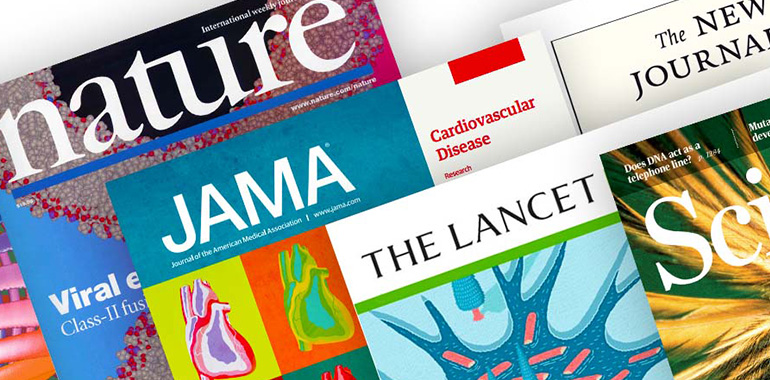This article was contributed by Lauren Rautiola, Associate Account Director at JB Ashtin.
As an author or study sponsor seeking publication for your clinical research, you want to avoid the dreaded resubmission cycle. How can you increase your chances of being published in an authoritative medical journal? In this article, we present a case study and a list of questions proven to make the journal selection process easier and more successful.
Comparing Journal Options
As a respected medical journal, the New England Journal of Medicine (NEJM) is considered by many researchers, investigators, and study sponsors one of the preeminent medical journals for publication. When JB Ashtin clients seek to publish their clinical data, the immediate publication choice is NEJM (or a similar journal like The Lancet, JAMA, Nature, or Science), right? Well, maybe; but there may be other options to better meet your objectives.
Case Study Scenario
Consider this example:
- GlobeWide Pharmaceuticals has a first-in-class drug developed to treat a rare endocrine disease
- Their novel drug was recently investigated in a phase 2b study
- All data have been analyzed and GlobeWide’s research team is eager to publish the findings
GlobeWide plans to start a phase 3 trial in less than 12 months, needs to obtain funding, and knows a competitor recently completed its drug trial for a similar product—making it a high priority for GlobeWide’s scientific team to get its manuscript published sooner than later. At first, this seems like a perfect combination for a top-tiered journal. How does GlobeWide balance the need for speed and still achieve the impact the team desires? GlobeWide must consider its specific publication needs.
Selecting a Target Journal
When choosing a journal, JB Ashtin partners with our clients to find the best solution. Sometimes NEJM is the perfect choice. Sometimes it’s not.
To determine the best target journal, we ask authors and study sponsors to answer several questions regarding topic, audience, timeline, frequency of publication, acceptance rates, and open access availability.
Must-Answer Questions When Choosing a Journal
Topic and/or audience-specific
- Which top 3 audiences will be most impacted by the results?
- What journal(s) are these audiences most likely to read or monitor consistently?
- Is there a journal that focuses on a specific therapeutic area your product is geared toward?
- How broad is the journal’s circulation?
Time from submission to publication
- What is the journal’s standard turnaround time for:
- Submission to first decision?
- Acceptance to online publication?
- Does the journal have a rapid-processing option?
Frequency of publication
- How often does the journal publish (online and in print)?
- Does the journal offer an “Online First” category (or equivalent), where papers that have been recently
accepted are available to readers in an unformatted draft?
Likelihood of acceptance
- What percent of articles submitted to this journal are accepted?
- Do the results fit with the trend of publishing for this journal (timeliness or trendiness of the topic)?
Open-access availability
- Is there an open access option, and how much does it cost?
The Best Way to Avoid Rejection
After carefully evaluating these questions, we often find that a topic-specific journal—with shorter review and publication times—is an outstanding choice for manuscript submission. In the case of GlobeWide, a publication that is more specific to the disease state, like Endocrinology, may be a better fit than NEJM, with its rapid review, online before print, optional open access, and an acceptance rate of nearly half. It can be tempting to immediately target a top-tiered journal with broad impact, but that may not be the best journal for your research. When authors and sponsors identify the most appropriate journal, they minimize the risk of rejection. Take time to consider your unique publication needs.
—
JB Ashtin’s team of publication specialists include PhDs and PharmDs, many of whom have earned Medical Publication Professional certification through the International Society for Medical Publication Professionals (known as ISMPP). Our team constantly monitors and evaluates publishing trends to help our client authors not only prepare well-written, cogent articles, but also determine the best and most appropriate journals that offer the most impact for their research. It’s a collaborative process, and we enjoy partnering with authors to accomplish their goals.

